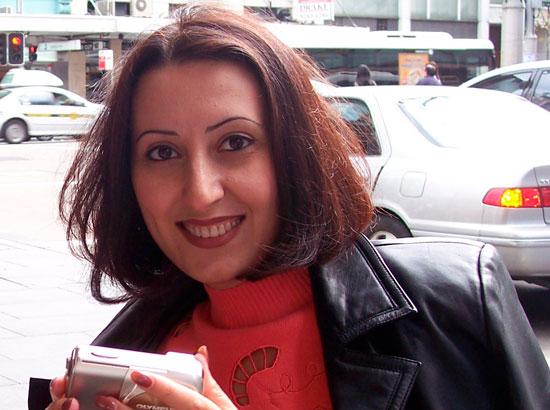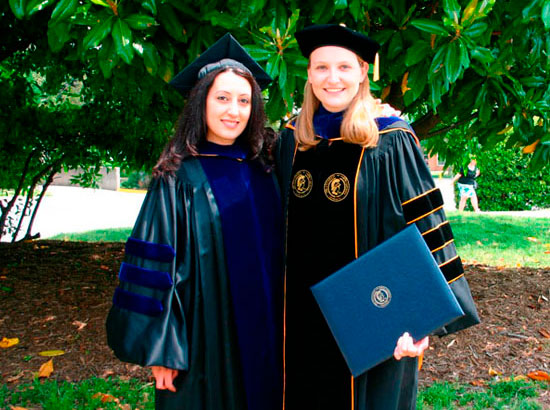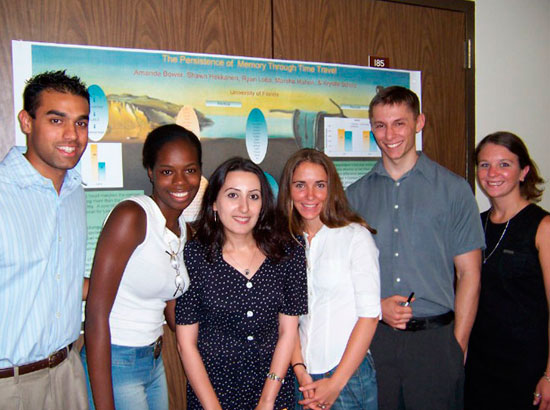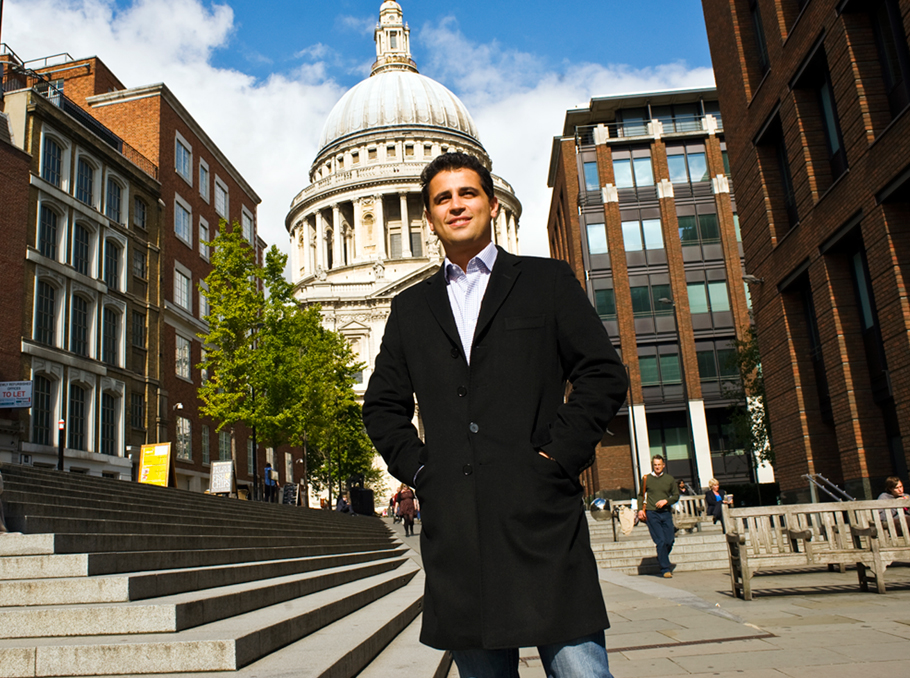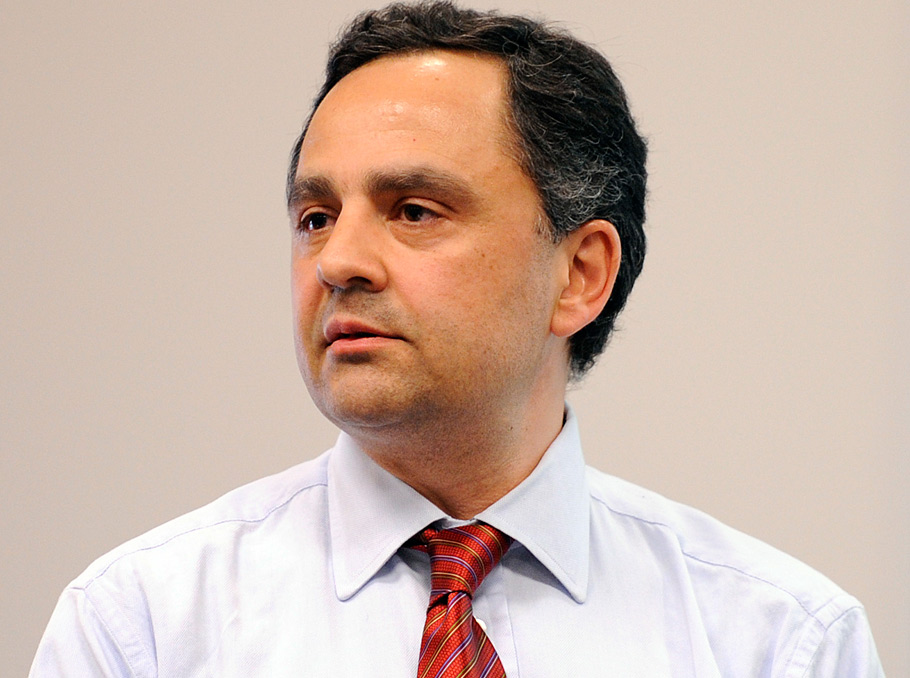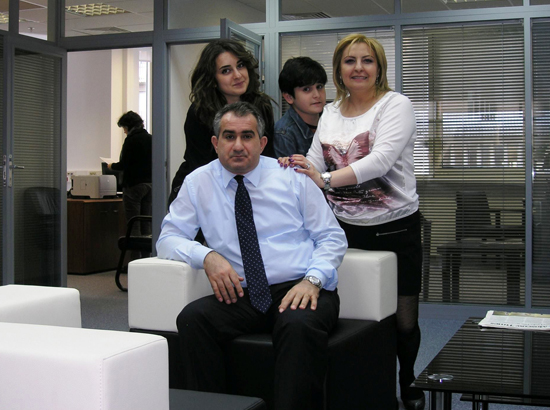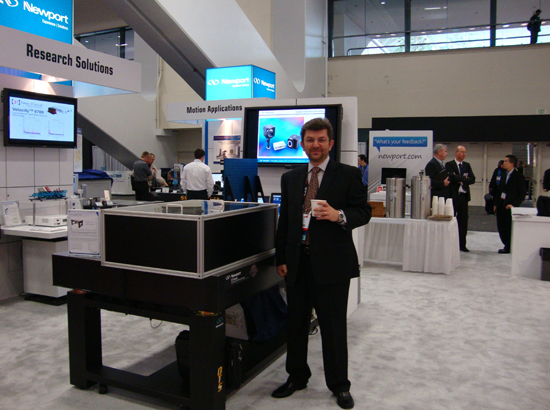A well-known cognitive psychologist Lili Sahakyan was born and raised in Armenia . She is currently an Associate Professor in the Department of Psychology at the University of North Carolina at Greensboro in the U.S., where she teaches and conducts her research. Lili Sahakyan is a memory specialist and in the scientific world she is known as the founder of the context theory of directed forgetting.
Lili Sahakyan attended # 62 Russian school of Yerevan. After 7 years of studying with honors, she decided to move to #139 Armenian school with extensive English learning.
With the start of the national independence movement, I had a strong desire to move to an Armenian school. I had a concern that the transition may not be easy as I had studied all the subjects in Russian. Much to my surprise, the transition was very smooth. Two years later, I jumped a grade in school and graduated ahead of time with honors, receiving gold medal. Physics, Geometry, and Algebra were my favorite subjects in school. I also loved and played music and even thought of majoring in it at the Conservatoire. However, the choice of the profession was greatly influenced by the Spitak’s earthquake in 1988 – there was a tremendous need for psychologists in Armenia at that time. I entered the Department of Psychology, Sociology and Philosophy of Yerevan State University (YSU). Having studied there for 3 years with honors, I participated in the student exchange program and was the only student from the YSU to win a competitive scholarship to further my education in the U.S. for one year.
Upon a year of excellent studying at the Slippery Rock University of Pennsylvania and obtaining Bachelor’s degree, Lili had to make a choice either to return back to Armenia or to accept an offer from the Slippery Rock University to continue training in their Masters program (the university was going to cover the tuition fees and other expenses).
It was enough to study psychology in the U.S. for just one year to realize how little the knowledge gained over that period was even if I managed to obtain Bachelor’s degree during that year. I had arrived from a country, where psychology was a young and understudied field unlike the fundamental sciences which are still competitive in the world. I was given a unique opportunity to further my education in the Masters program. Slippery Rock University granted me scholarship fully covering my tuition fees. I preferred the path of expanding my knowledge. I obtained the Masters degree in Counseling Psychology. My thesis was devoted to the problems of memory under conditions of stress and anxiety. Upon completion of the thesis, I became more interested in the scientific investigation of memory problems and decided to dedicate my post-graduate training to more detailed study of memory. In 1997, I was admitted to Florida State University, where I specialized in Cognitive Psychology, and in 2002 obtained my Ph.D. in that field.

Receiving a Ph.D. in Cognitive Psychology from Florida State University FSU) in 2002
The Psychology Department of FSU honors their Ph.D. graduates by placing a brick engraved with their names in the courtyard of their building. Circled in white is the brick of Dr. Lili Sahakyan.
Photo: from Lili Sahakyan’s personal archive
Dr. Lili Sahakyan is an author of numerous scientific articles, which were published in highly visible and influential journals and were presented at many international conferences, including in the U.S., Australia, France, Canada, Spain, England, and other countries.
I had not yet obtained my Ph.D., when I was invited to Spain to take part in the International Conference on Memory which is organized every 5 years. Prior to that invitation, I had presented my theory at various conferences in the U.S, and the work had aroused scientific interest. It was the starting point for my academic career. After obtaining Ph.D., I got a job at the University of Florida in Gainesville. Two years later, I moved to the University of South Florida located in Tampa.
Lili Sahakyan's research is based on experimental laboratory investigations and finds its practical applications in real life. She examines remembering and forgetting processes in young and older adults. During the interview, she offered some practical advice on how to memorize new material.

Lili Sahakyan on the day of granting her first Ph.D. degree to her student
Photo: from Lili Sahakyan’s personal archive
The principles of cognitive psychology are reflected in many everyday human activities. For example, how to develop a training schedule that would be maximally effective in music, in sports, or while learning anything new? How to prepare a lecture so that the students would easily follow it and remember it? How often should we conduct tests to examine the knowledge during the teaching process? Latest research shows that testing serves not only as the method for assessing one’s knowledge, but that it also contributes to the long-term retention and memorization of the material. As a memory expert, I would suggest that in order to learn anything new, instead of reading the material numerous times consider retrieving it from memory without any aids. Research shows that the process of retrieval strengthens memory and makes it more durable and long-lasting. It is important to realize that the process of retrieval from memory is not an easy and pleasant process. During repeated reading, one can get an illusion that everything is already memorized, but while attempting to retrieve it form memory it turns out not to be the case. Another practical advice for enhancing memory would be to take breaks during the study process instead of studying for a prolonged period of time. Finally, studying in different environments and contexts is more productive than always studying in the same context.

Students working under Professor Sahakyan's supervision at University of Florida presenting their research findings
Photo: from Lili Sahakyan’s personal archive
It is well known that memory is getting weaker with age. However, not all aspects of memory change while aging. For older people, especially those who are afraid of Alzheimer's disease or dementia, it is important to know which aspects of memory change and which aspects of memory remain intact while aging. Although the biological changes taking place in the brain are unavoidable, we could attempt to reduce their impact by leading more active lifestyle. Brain riddles and crosswords, which require constant thinking, contribute to preserving good memory. Overall, it is helpful to think of brain as a muscle that requires constant training and development.
Our hero has a number of interesting hobbies. She plays the piano, the guitar, composes and sings. She is also fond of swimming.
Those two hours spent in water are my most productive thinking time, when there are no distractions, phone calls, emails, or conversations. During that time, I can fully concentrate on the scientific problem I am working on at the moment.
I am also fond of traveling. Only by travelling and seeing other worlds, one can objectively evaluate their own country, assess its positives and negatives, and contribute to its prosperity and development.
Lili Sahakyan says that initially it was extremely difficult to get used to a new country. Although she does not visit Armenia too often, she keeps emotionally tied to her motherland, its culture, music, and literature.
My departure from Armenia coincided with its energetic and economic crisis, when the phonecall, which was the only means of communication with my family had become very expensive and rare pleasure due to constant power outages. Moreover, I found myself in a town in Pennsylvania where there was not a single Armenian. They learned about Armenians through me. While overcoming all the difficulties, I always remembered the words of the Chairman of Philosophy of YSU, Edward Harutyunyan, who said the following while seeing me off: "Lili, you are enlisted a soldier from now on. We send you as a soldier hoping you will come back as a General".
I have been living in the U.S. for nearly 18 years. I do not often visit Armenia as my parents live in Moscow but the spiritual ties with the motherland remain strong. I often finish my work days by reading Paruyr Sevak or playing Babajanyan, Khachaturyan or Komitas. I have taught my husband Armenian so that there was a reason to speak Armenian at home.

Members of Professor Sahakyan's research laboratory at University of North Carolina at Greensboro, including graduate students working towards their Ph.D., Masters students, and undergraduates (Bachelors students) working on their honors theses and other research projects.
Photo: from Lili Sahakyan’s personal archive
I plan to visit Armenia next summer. I would like to be useful to the country in training psychology specialists, share my knowledge with Armenian students and bring them closer to international standards. I hope the YSU will respond to my wish and will support implementation of my plans.
In response to our question whether Lili thinks she is a “global Armenian”, she said the following:
I do not know what you mean by "global Armenian". The word "global" can have many meanings. If you mean whether I have a global recognition in the scientific world, then I can honestly say - yes. It is curious to note that I am probably the least known in my own motherland, if known at all. It was not easy to establish myself in psychology and contribute to it in a country, which is a leader of psychological science in the world. My works have been published and presented not only in scientific journals and conferences, but they are also included in memory textbooks, which educate new generation of students not only in the U.S. but also in other countries, including in England. Taking into account these criteria, I would say I am "global", and given that I am Armenian, these two concepts become logically linked. With that said, I believe it would be immodest of anyone to call oneself "global". One cannot determine being "global" on their own; it is determined by others.
Lili Sahakyan was interviewed by Mariam Manoyan.









